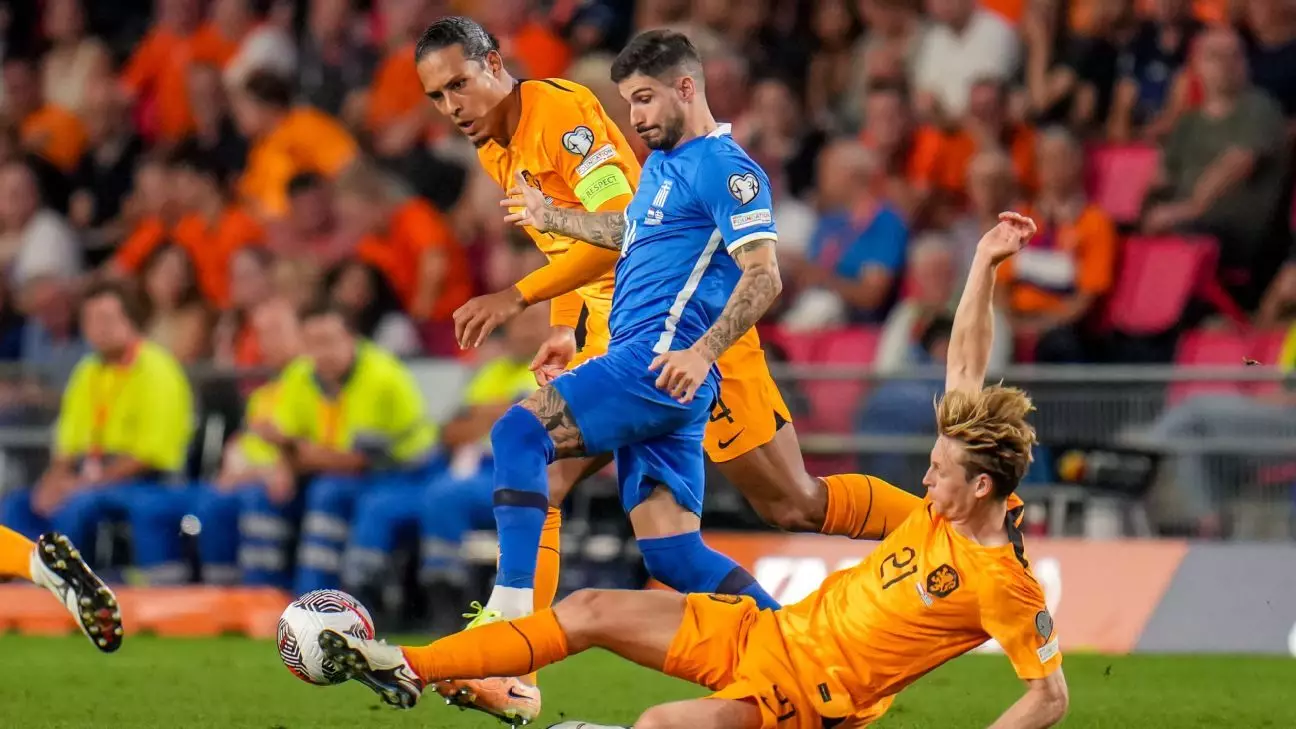In a significant move ahead of their UEFA Nations League match against Bosnia and Herzegovina, Netherlands head coach Ronald Koeman announced that key players Virgil van Dijk and Frenkie de Jong have withdrawn from the squad. This decision, rooted in medical advice, emphasizes the coaching staff’s commitment to prioritizing player health and longevity over immediate match outcomes. With both players returning to their clubs, it raises an important discussion about the delicate balance between national duty and individual player welfare in professional sports.
Van Dijk, the esteemed Liverpool captain, is considered a cornerstone of the Dutch defense. While reports indicate that his absence is precautionary, there’s widespread agreement that his experience and leadership are invaluable to the national team. At 33, van Dijk is navigating the latter stages of his career, and keeping him fit is paramount not just for his club’s ambitions but also for the Netherlands’ future endeavors. The team’s recent success, highlighted by a dominant 4-0 victory over Hungary, provided the perfect backdrop for Koeman to exercise caution with two of his most crucial players.
Frenkie de Jong’s situation is equally noteworthy. His recent return to international competition marks a crucial milestone after a year riddled with injury. Having missed out on the European Championship in Germany, the Barcelona midfielder is still in the process of regaining his form. De Jong himself noted that he “still needs some time,” underlining the reality that immediate performance does not always equate to readiness. In this context, his withdrawal serves as a necessary acknowledgment of the long road ahead in his recovery and adaptation.
The Netherlands’ decision reflects a growing trend in international football, where coaches are increasingly mindful of the broader implications of fixtures and schedules. By not risking injuries to pivotal players, Koeman ensures the strategic strength of the team moving forward. However, this approach must also consider the potential impact on team dynamics and chemistry, especially given that international windows often disrupt club cohesion.
The forthcoming match against Bosnia and Herzegovina represents a critical juncture in the Nations League, but the Dutch squad has proven depth and resilience. The strategy of prioritizing player health, particularly for those who play at the elite level week in and week out, sends a resounding message about sustainable practices in football. As teams consider both immediate results and the long-term career trajectories of their players, it is vital that they address individual needs without compromising collective ambitions.
As Liverpool gears up for their upcoming fixtures, including challenging encounters against Southampton, Real Madrid, and Manchester City, the focus will undeniably be on the well-being of stars like van Dijk. Likewise, De Jong’s journey back to full fitness will be a subplot worth monitoring, not only for Barcelona but for the Dutch national squad as well. The choices made today will shape the future landscape of both club and country, underlining that a modern approach to player management is not merely a tactical decision but a philosophical shift in professional sports.

